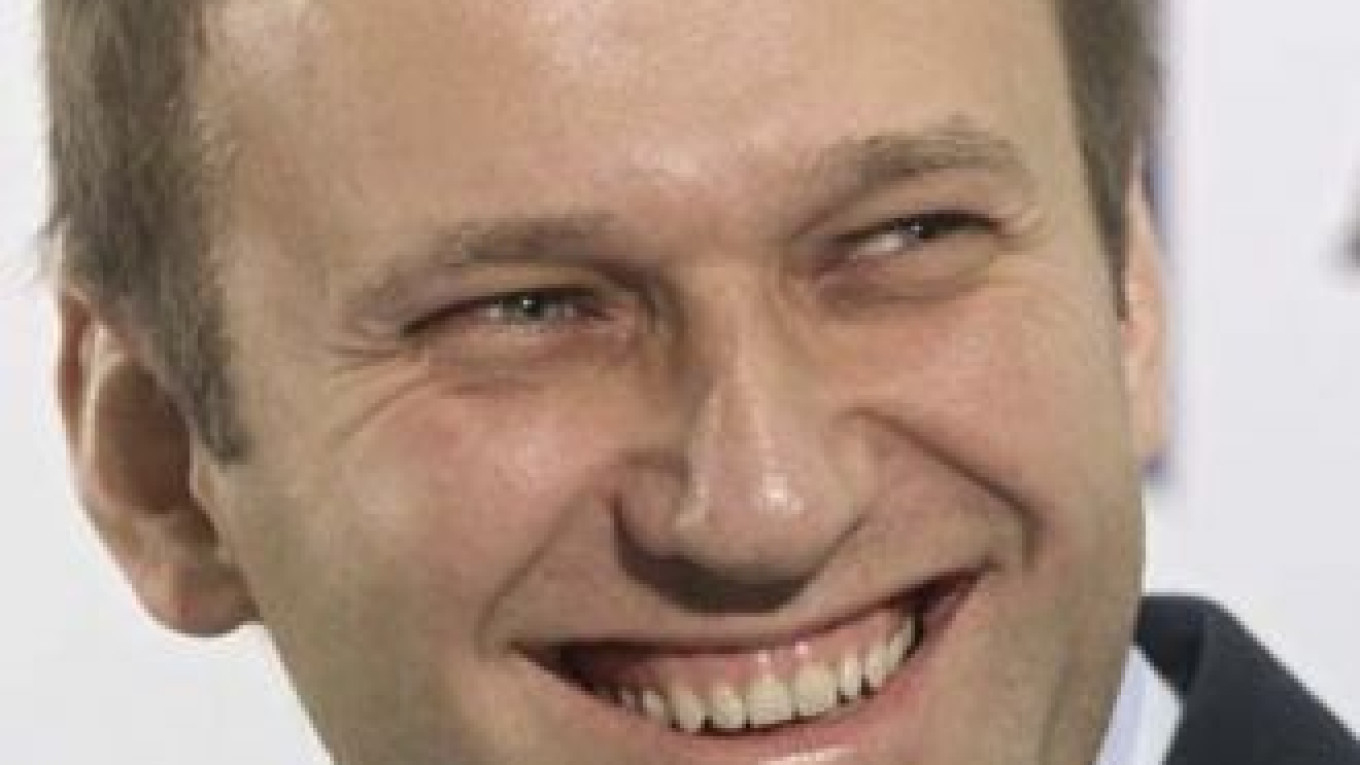Update appended.
Whistleblower and opposition leader Alexei Navalny on Monday published an investigation into the construction of Olympic facilities in Sochi that said contracts had been repeatedly altered to inflate their cost, allowing officials and businessmen to embezzle billions.
Published as an interactive website in both Russian and English, Navalny's investigation found that opaque tenders resulted in juicy contracts going to familiar "friends of Putin" and skyrocketing costs at 10 Olympic construction projects. Overall, the Games cost 1.5 trillion rubles ($44 billion), 96 percent of which was taken from public sources, the report said.
As the Games, which run from Feb. 7 to 23, draw nearer, the government has been battling negative publicity. In an interview with foreign media on Jan. 19, President Vladimir Putin denied allegations of corruption. There was no objective information to back up the claims, he said, and "no one has provided us with such information so far."
Putin and ministers responsible for the Games have said that 214 billion rubles have been spent on the Olympics, only 100 billion rubles of which came from the state budget. That number displays some slight of hand? — it excludes spending on infrastructure that would have been needed? whether or not Sochi was hosting the Olympics, Deputy Prime Minister Dmitry Kozak said.
"We have two figures," Navalny said in an interview with sports.ru on Monday. "The first one — 1.5 trillion rubles — is our estimate. The second one — 214 billion rubles — is Putin's one. Now we can state with certainty that what Putin says is an outrageous lie." ?
According to the report, there was no real competition for construction contracts, all of which were given to "old friends of Putin," including billionaires Gennady Timchenko, Arkady Rotenberg, and Vladimir Yakunin. These businessmen then overcharged and siphoned $15 billion dollars out of the state's coffers.
"Tenders for construction were either completely formal, or there were no tenders at all," Navalny said.
Timchenko's press secretary denied the charges, saying that no company under the businessman's control participated the tenders highlighted in the report.
Breaking down the sources of financing, the report said that more than half of the 1.5 trillion rubles spent was drawn from the state budget; a further 30 percent was contributed by state corporations; and about 2 percent was taken from the budget of the Krasnodar region, where the Games are being held. Additionally, Vneshekonombank granted loans worth 249 billion rubles, which will be covered by budget money later, Navalny said.
Alexander Zhukov, head of the Russian Olympic Committee, said last year that 60 percent of investment in Sochi construction was private.
The most expensive piece of Olympic infrastructure is a road linking the coastal cluster of Adler with the Krasnaya Polyana ski resort in the Caucasus mountains, with an overall cost of 285.4 billion rubles, Navalny's report said. That amount is 90 percent more than originally planned, and equivalent to the overall budget of the Vancouver Olympics held four years ago, the report said.
The Fisht Stadium, which will host both the opening and closing ceremonies and has had its deadline for completion repeatedly pushed back, cost 14 times more than initially budgeted. With less than two weeks to go before the start of the Games, the stadium still has not been officially opened. It has cost up to 23 billion rubles, the report said.
Navalny is not the first to look into graft in Sochi, but the findings of numerous investigations and checks have often depended on who is doing the looking.
Opposition politicians Boris Nemtsov and Leonid Martynyuk gave an even higher estimate than Navalny in a report they published last spring, saying that between $25 billion and $30 billion had been stolen in Sochi.
A Swiss member of the International Olympic Committee and president of the International Ski Federation, Gian-Franco Kasper, accused Russian authorities earlier this month of embezzling one-third — or about $18 billion — of the funds allocated to prepare for the Olympics.
Putin on Jan. 19 acknowledged that there were cases when developers and contractors attempted to drive up the price of construction works but said there was no proof that money was misappropriated.
The Sanki bobsled track, which cost 7.9 billion rubles, is one of the few Olympic facilities that attracted the attention of state prosecutors, with a criminal case being opened and allegations of deliberate price raising. No suspects have been named.
An unidentified source at the Audit Chamber told Forbes in 2012 that the cost of four Olympic facilities, including Bolshoi Ice Dome, Sliding Center Sanki, Iceberg Skating Palace, and Fisht Stadium were artificially jacked up by 17.7 billion rubles.
But Kozak, speaking earlier this month, said that checks conducted by both the Audit Chamber and the Federal Financial and Budgetary Supervisory Service did not reveal any violations.
Going beyond the pilfering of funds by unscrupulous construction firms, Navalny said 180 million rubles had been extorted in the course of preparations for the Olympics, while workers at some of the building sites went unpaid. On top of that, the report catalogues numerous environmental violations and construction projects that soaked up Olympic cash despite being unconnected to the Games.
"During construction, facilities that have absolutely nothing to do with the Olympics were put on the list of the Olympic facilities. The most expensive one is a Formula-1 track, for which 12 billion rubles were allocated from the state budget," Navalny told sports.ru.
Update: A response to Navalny's allegations from businessman Gennadi Timchenko's press secretary has been added to this article.
Contact the author at e.kravtsova@imedia.ru


